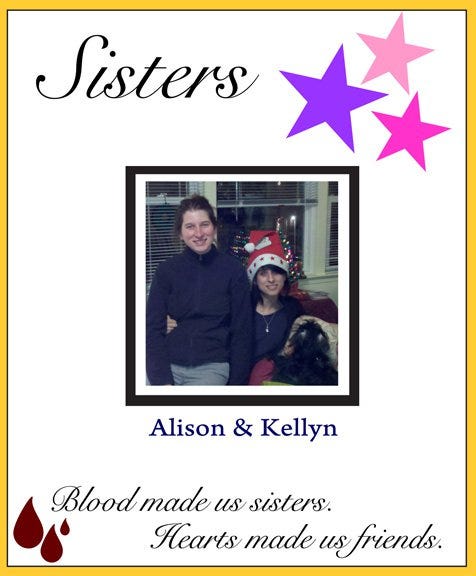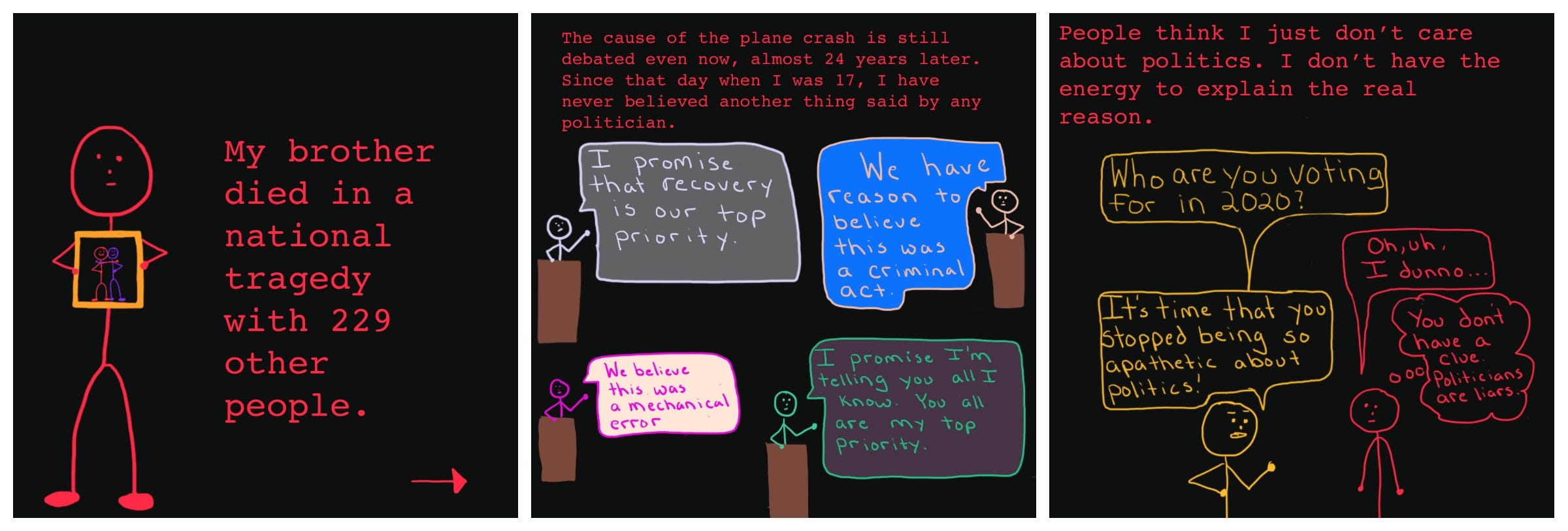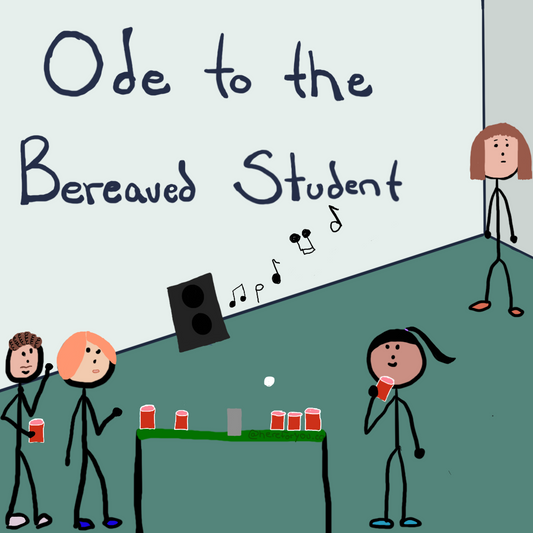Soon after my dad died in 2004, I came to the logical conclusion that I was evil. I told my new boyfriend about it in a jokey manner, my go-to approach for serious yet scary conversations.
“I’m about 80% evil. Just thought you should know…” I casually mentioned while using a Bic pen to draw a doodle on his hand (one of the many odd flirtations we participated in during the early months).

In college, I was about as straight edge as one could be — no drinking, smoking, drugs, parties, rule-breaking, and until that moment, relationships. He looked at me with a smirk and responded, “Yeah — ok, sure,” and that was that.
He couldn’t see any evil in my innocent presentation and figured it was one of my quirks, like how I would wear old-man velcro sneakers and knee-high socks with splashy patterns.
What he didn’t know about, and what I was too scared to admit, were the thoughts that had been swirling in my head during my dad’s final year and in the months after his death. My hostility of people with intact families, my hatred towards a friend’s mother who never expressed her condolences, and my short temper with anyone who expressed sadness about the death of a grandparent or (gasp) a dog. I was a 20-year-old consumed by angrief.

Never in my life had I been so judgemental, and coupled with that judgment was an underlying riptide of rage. Despite these all-consuming feelings, I remained silent. I felt that I couldn’t disclose the terrible thoughts swirling in my brain, because truly they must have been the leanings of a sociopath.
Grief Changes
For almost everyone, the intensity of grief changes over time (thank gosh). It’s never easy, but it becomes more manageable.
When it comes to the diminishing intensity of grief, no one follows the same timeline. Some move swiftly from the crumble-to-your-knees or run out of the grocery store in tears phase and others hang there for a while.
The timeline is also not linear. The pain of the weeks and months may return many years later, but there’s often a general downward trend in the intensity of the pain. Thankfully, the love we have for the person who is gone can stay strong.

As the years progressed, I eventually found myself able to hold space for friends with recently deceased grandparents and I could even express condolences when someone’s cat died. I no longer judged their grief and I stopped hoping for tragedy to befall the people I cared about.
If a friend told me that their parent was diagnosed with cancer, I sincerely hoped for their recovery. This was a stark difference to the early years of my grief when I would have secretly hoped for their quick demise so that I’d have a buddy in the club no one wants to join.

But then, on August 9, 2017, my sister, Alison, died unexpectedly. And just as swiftly, my rage returned. This time, however, I recognized it for what it was — a sign that my grief was raw. A temporary obsession that would likely stay with me for a few years but was no indication of who I was as a person.
And now that I know what these feelings are, I wish to liberate them from their hiding place. Only in sharing what we believe to be shameful will we realize that this way of thinking is commonplace. That even the most kind-hearted, compassionate people will occasionally hope that their friend’s dad will die of a heart attack.
It’s not always appropriate to admit that you wish your mom had died instead of your dad or that you want to kick your friend who complains about the pain of a breakup when you are trying to decide if you should leave your deceased’s child’s room as-is or turn it into a guest room.
But knowing that other people think the same way is one of the most comforting forms of grief support. It’s proof that you are not alone, and in a way, we’re in this together.

To bring these thoughts into the open, I started a weekly series called Hidden Grief. Every Saturday, an anonymous submission is posted. It’s a chance for people in the bereaved community to release their angrief without worrying that they might offend friends and family. It’s a place for people to know that they’re not the only ones with thoughts that feel shameful.
Validation
When you’re grieving, there’s often a magnetic pull that draws you to anyone else in grief, even (especially?) if they’re a stranger. You overhear someone in the checkout line talking on the phone about their recently deceased mom, and suddenly you want to stand in their personal space and tell them you understand.
There’s freedom and comfort when you have a chance to talk with someone who ‘gets it.’ If you have a few more years under your belt than they do, it’s tempting to pick up the role of a grief mentor. You might serve as their source of hope, proof that the debilitating pain of early grief will not last forever and that life can have joy and a new version of normalcy.
But there is a fine line to walk.

As a grief mentor, we might be tempted to try to talk the newly bereaved down from their anger or encourage them to just let the feelings go. But you can’t use logic to dismiss your hidden grief. It’s something that someone has to come to terms with on their own time.
If a friend, loved one or stranger trusts you enough to confesses their hidden grief, it’s almost always most helpful to validate (no matter how absurd you find the confession). “I can understand why you’d feel that way,” could be a response to someone who shares their secret wish that a coworker’s pregnancy will end in miscarriage. “I can imagine myself struggling to be around that friend too,” is a perfect reply if someone confesses that their friend’s complaints about their over-involved mother warrant a good old-fashioned ass-kicking.
Of course, always use your intuition and if someone is a threat to themselves or others, look for help (like the Crisis Text Line, Suicide Prevention Lifeline, JED Foundation, etc.).

If you find yourself wondering if you’re 80% evil because of the dark thoughts you’ve started obsessing over since your loved one died, I can assure you, you’re not.
There are millions of us out there just like you.
And if there’s something weighing you down, anonymous submissions to Hidden Grief are always welcome.
____
Here For You offers fully customizable care packages for family and friends living through life's toughest transitions. Our practical gifts range from curated household essentials to customizable sets of self-care items, all prepared with a personal touch.


